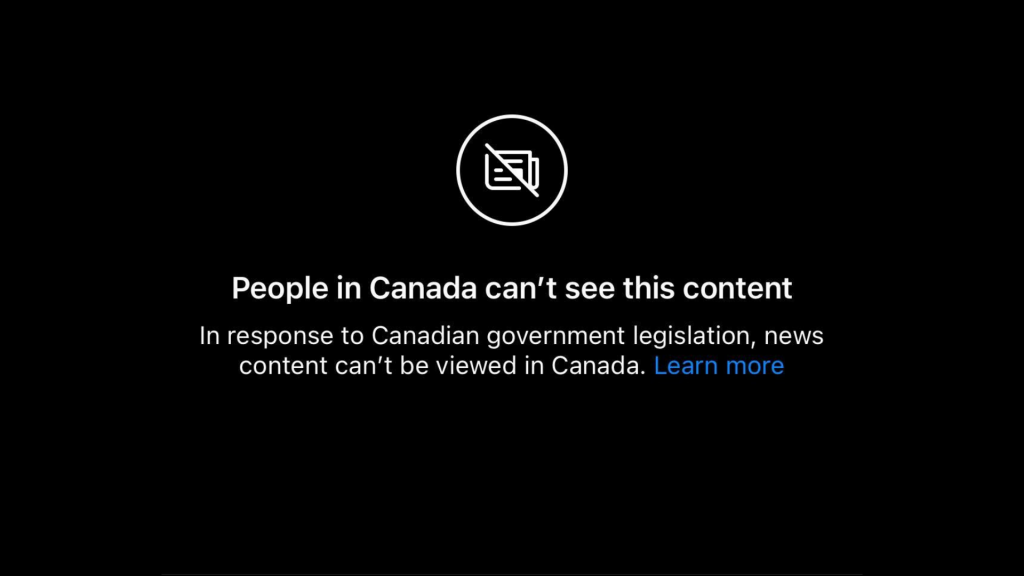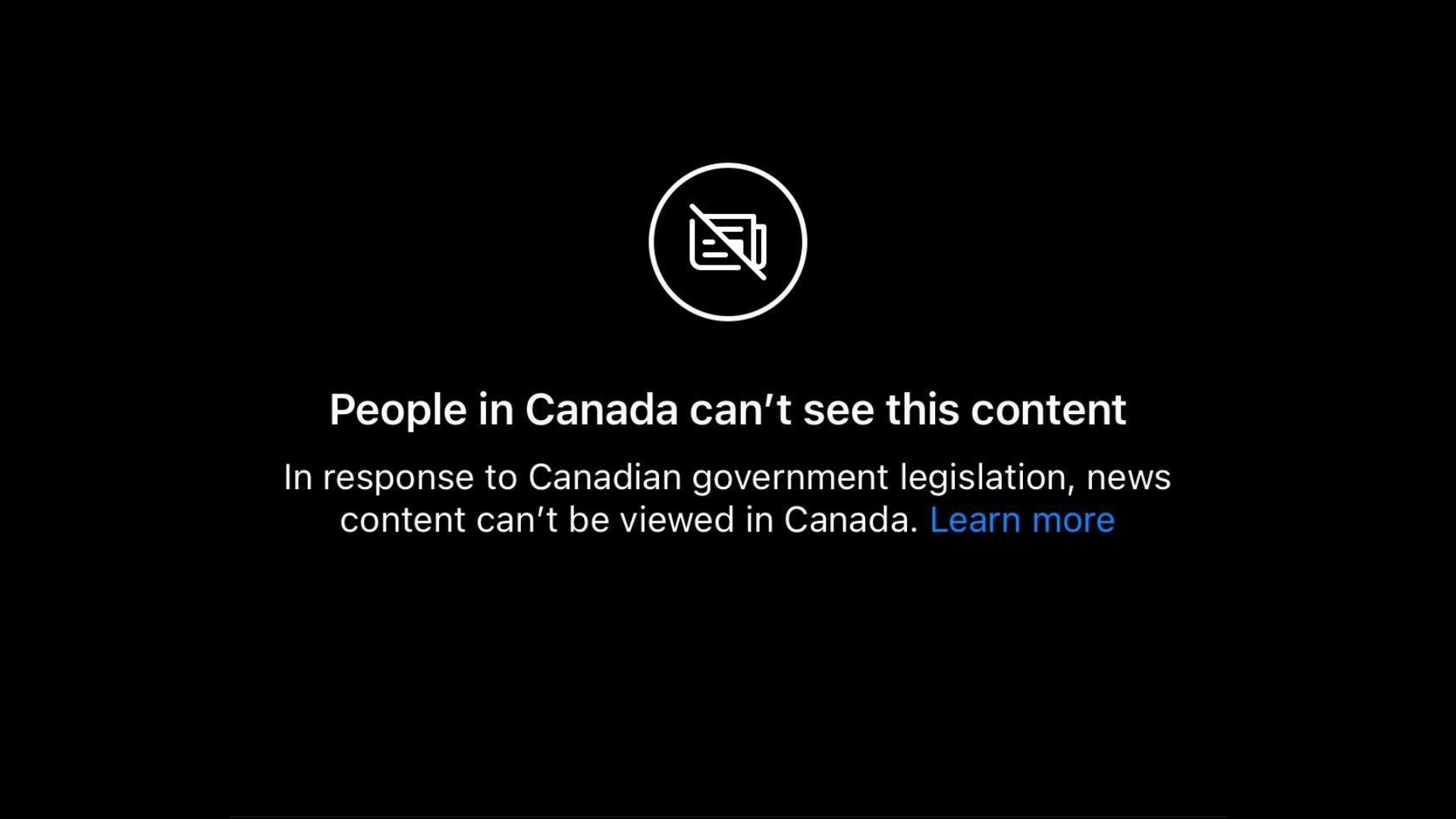
Emily Yang (10) | STAFF REPORTER
It’s 8 a.m. on a bright Saturday morning. As you enter the kitchen, you hear distinct chattering coming from the TV, and your little brothers scream and zoom past you. Oh well, you think, as you grab a coffee and start scrolling on CBC’s Instagram account for the latest news.
Suddenly, a black screen pops up on your phone. “People in Canada can’t see this content” . That’s weird, you say, and tap on another post by CTV News. Same thing. Your heart drops, and your palms start sweating. You try on Facebook, too, but no luck. As you slowly sink in your chair, you think, What has this world become? Also, when did my parents have more kids?
This was the situation for many Canadians on that Saturday morning, June 22, 2023, the passing of Canada’s new bill, Bill C-18, or the Online News Act. The Online News Act, first proposed in 2022, served as a “bargaining framework ” (Government of Canada) in which dominant, digital platforms, such Google or Meta needed to compensate Canadian news outlets when sharing their content and data information.
In response to this new law, Meta, the company behind Facebook and Instagram, has blocked all Canadians News from their platforms since August 1, 2023. Nick Chegg, the President for Global Affairs at Meta released the company’s take on this situation with, “the Online News Act is based on a fundamentally flawed premise. Meta does not benefit unfairly from people sharing links to news content on our platform”. He also supports his statements with, “The truth is, our users don’t come to us for news”.
Echoing Meta’s concerns, Google claims that this new bill could create “uncertainty for our products and expose us to uncapped financial liability”. The company and Meta alike have both stated that their sharing of Canadian news have brought considerable profit to these news outlets, claiming that this free ‘marketing’ and ‘traffic from links’ have brought Canadian news outlets $250 million and $230 million dollars, respectively.
What is the response from the Canadian Government? Simply put, not enough. The government has stated that in 2022 alone, online ad revenues in Canada have reached $14 billion dollars, with 2 major digital giants, Google and Meta, receiving around 80% of the share. While these 2 companies benefit in billions surrounding this advertisement, the Government of Canada states that “news outlets shutter each year, due in large part to a loss of advertising revenue”.
In support of this statement, statistics from an Angus Reid report state that “85 per cent of Canadians do not pay for any online news subscriptions and Canadians under the age of 64 usually check social media sites such as Facebook and Reddit first to get their news”. Amidst the modern day ‘digital society’ dominated by primary platforms such as Facebook, Instagram, X, etc, Canadian News outlets face the backlash of falling subscriptions and ad revenue, many resulting in their closures or bankruptcies.
In their response, the Canadian Government has chosen to pass this Act to “… ensure that platforms compensate news businesses fairly…reach voluntary commercial agreements with a range of news businesses”. Presently, while Meta has still blocked all forms of Canadians news on their platforms, Google has chosen to work with the “government through the exemption process based on the regulations that will be published shortly”.
However, while the Online News Act defends Canadian News outlets, as well as their rights and deserved compensation for their original work, the effects from this new Act have been mixed. While some larger news outlets have received financial benefits as a result of this law, smaller news outlets face longer, more arduous challenges in this negotiation and share of compensation. At the same time, concerns arise regarding the diversity, cultural, and political impacts of the government’s bill, with an emphasis on the unintended consequences, such as misinformation with the removal of more recognized and qualified news outlets.
In conclusion, the Online News Act strives ultimately for the conservation and protection of news outlets in Canada. While impacts of this Act have been slow to show, the act serves as a valuable defense in the right of the Canadian news outlets to their original work.



